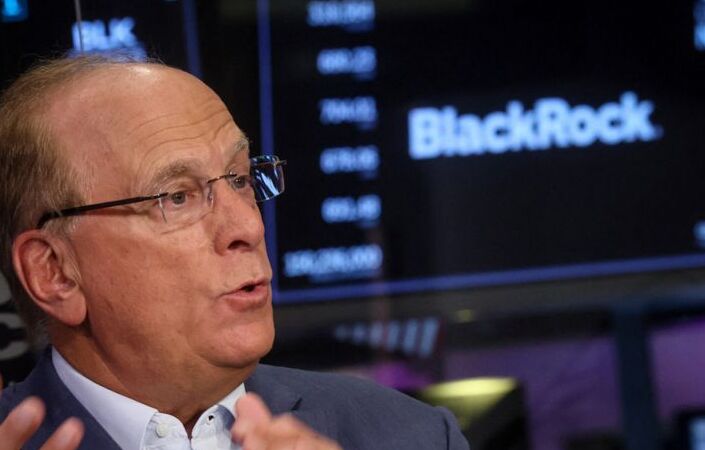Larry Fink’s pay for the past year has been reduced by 30% to $25.2 million, according to BlackRock.
BlackRock, the world’s largest asset manager, has announced that it will cut the pay of its CEO, Larry Fink, by 30% for the past year. Fink’s pay will be reduced from $37.3 million in 2019 to $25.2 million in 2020, according to the company.
The move comes in response to criticism from some shareholders and activist groups about executive pay at BlackRock and other large companies. Fink has been one of the highest-paid CEOs in the financial industry, with a total compensation package that included a base salary, bonuses, and stock options.
BlackRock has defended Fink’s pay, noting that it reflects his performance and leadership in guiding the company through a challenging year marked by the COVID-19 pandemic and market volatility. The company has also emphasized its commitment to responsible governance and compensation practices, including regular engagement with shareholders and independent oversight of executive pay.
However, the decision to cut Fink’s pay highlights the growing pressure on companies and their executives to address concerns about income inequality and excessive compensation. Many investors and advocacy groups have called for greater transparency and accountability in executive pay, as well as more meaningful links between pay and performance.
In recent years, some shareholders have taken a more active role in pushing for changes to executive pay, including voting against compensation packages and engaging in dialogue with companies on governance issues. This trend has been fueled by growing awareness of the impact of income inequality on society and the economy, as well as increased scrutiny of corporate practices and values.
BlackRock’s decision to cut Fink’s pay reflects this broader trend, as well as the company’s commitment to responsible governance and stakeholder engagement. The move is likely to be seen as a positive step by many investors and advocacy groups, who have called for greater accountability and alignment of pay with long-term value creation.
At the same time, the decision is also likely to raise questions about the effectiveness of executive pay practices and the broader issue of income inequality. Some critics argue that even a 30% reduction in Fink’s pay still leaves him with a significant income, and that more meaningful reforms are needed to address the root causes of income inequality.
BlackRock has acknowledged these concerns, and has emphasized its ongoing commitment to responsible governance and stakeholder engagement. The company has also signaled its intention to continue to review and refine its compensation practices, in order to ensure that they are aligned with the long-term interests of shareholders and other stakeholders.
The decision to cut Fink’s pay also comes as BlackRock and other asset managers face increased scrutiny over their role in shaping corporate behavior and societal outcomes. As one of the largest shareholders in many companies, BlackRock has significant influence over their governance and strategic decisions, and has been criticized by some activists and lawmakers for not using that influence more effectively to address social and environmental issues.
BlackRock has responded to these criticisms by increasing its engagement with companies on sustainability issues, and by launching new funds and initiatives focused on sustainable investing. The company has also advocated for greater transparency and disclosure from companies on their sustainability practices and risks.
The decision to cut Fink’s pay is likely to be seen as a further indication of BlackRock’s commitment to responsible governance and sustainability. However, it also underscores the challenges facing companies and executives in balancing the interests of different stakeholders and addressing complex societal issues.
As the world continues to grapple with the COVID-19 pandemic and its economic and social fallout, the issue of executive pay is likely to remain a key focus for investors, policymakers, and society at large. BlackRock’s decision to cut Fink’s pay is just one example of the ongoing debate and evolution around this important issue, and is likely to spark further discussion and action in the months and years to come.





